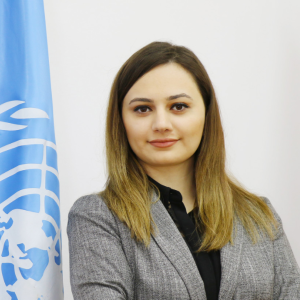WHO calls on governments to invest in nurses
07 April 2020
- The COVID-19 pandemic underscores the urgent need to strengthen the global health workforce. A new report, The state of the world’s nursing 2020, released on the occasion of World Health Day, provides an in-depth look at the largest component of the health workforce.
Findings identify important gaps in the nursing workforce and priority areas for targeted investment in nursing education, jobs and leadership to strengthen nursing around the world and improve health for all.
Nurses account for more than half of all the world’s health workers, providing vital services throughout the health system. In the WHO European Region, 57% of the health workforce are nurses.
Historically and today, nurses are at the forefront of fighting epidemics and pandemics that threaten health. Nurses around the Region are responding to the COVID-19 pandemic with courage: never before has their value been more clearly demonstrated.
“Our fight against COVID-19 has once again brought home how fundamental the nursing profession is to society and to all of us. Faced with the most exceptional circumstances and toughest working conditions, nurses across the European Region and the world have met the challenge with bravery, compassion, and professionalism. They, together with all frontline health workers, deserve our deepest thanks and respect,” said Dr Hans Henri P. Kluge, WHO Regional Director for Europe.
“It is high time we give the nursing profession the recognition it deserves. Today, as we mark World Health Day, and in the future, countries must invest in nurses and support them to work to the full extent of their training and scope of practice. In so doing, our skilled and dedicated nursing workforce will have the strength and resources to build a healthier Europe,” he concluded.
In the European Region, there are 7.3 million nurses or about 79 nurses per 10 000 people. Although this is about double the global average, experts say that because of the age structure of the nursing workforce in the Region and a reliance on international recruitment of nurses in some high-income countries, there is no room for complacency.
About 90% of all nurses are female, yet only 25% of leadership positions are held by them. This emphasizes the need for policies that increase and enhance nursing leadership and encourage female participation at leadership levels.
“Nurses are the answer to many of our health problems. If we want strong health services, we must invest in nurses, educate them to international standards, and provide them with appropriate resources. Nurses should receive fair pay for their work and be able to continue to develop professionally. This will help enhance health outcomes, improve quality of care and advance universal health coverage,” said Dr Hande Harmanci, WHO Representative in Azerbaijan.
Governments should invest to accelerate nursing education and training, create nursing jobs, and empower nurse leadership. Without nurses, midwives and other health workers, countries cannot win the battle against outbreaks or achieve universal health coverage and the Sustainable Development Goals.
“Nurses are the backbone of any health system. Today, many nurses find themselves on the frontline in the battle against COVID-19,” said Dr Tedros Adhanom Ghebreyesus, WHO Director-General. “This report is a stark reminder of the unique role they play and a wake-up call to ensure they get the support they need to keep the world healthy.”


